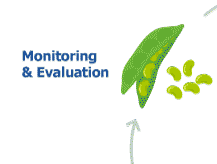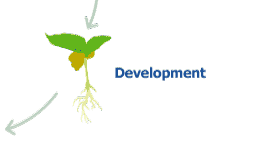What is the Policy Compendium?
The Policy Compendium is a tool that contributes to filling the gap between the rural advisory services (RAS) policy environment and RAS efforts in the field. It helps direct decisions and facilitate successful policy processes and outcomes in extension and advisory services by making knowledge accessible, fostering synergies and promoting policy processes to improve RAS and rural development.
It has two purposes.
- It provides easily accessible and understandable resources for those developing, implementing, monitoring, evaluating or advocating for RAS policy. The Compendium provides background information, inputs, ideas and hands-on guidance for decision-making and facilitation of successful policy processes for RAS.
- The Compendium is also closely linked to GFRAS’ efforts with regards to the Consortium on Extension Education and Training and to policy dialogues at regional and national level: While the Policy Compendium provides background and learning materials to support advocacy trainings and policy dialogues, results from trainings and policy dialogues will feed back into the Policy Compendium, enriching it with up-to-date data for practitioners using it.
The Policy Compendium is dynamic and is continuously expanded. For more information on it's structure and history, visit the sub-category "About".

Find one in the GFRAS Roster of Experts!
GFRAS Policy Working Group
The GFRAS policy group was formed at the request of the GFRAS steering committee due to the high level of interest in this topic, especially in Africa.
The working group will:
- Harmonise activities within policy making for extension and advisory services
- Link demands to resources within policy activities
- Make information and resources publicly available on the relevant web sites
Find out more at the GFRAS website.
Welcome!
New to the GFRAS Policy Compendium? Get an overview of the design of the Compendium to help you find the information you need as easily and quickly as possible.
The Policy Compendium is designed to mirror key aspects of a policy life cycle, organised along the following categories.
- Introduction to RAS policies: What are key terms and principles to understand RAS policies? What are the purpose and objective of policies related to RAS?
- Advocacy: How can one be engaged in policy processes? How can policy be influenced? How can you communicate effectively?
- Development: What methods exist to design new policies and/or adapt existing policies so they are connected to demand, political processes and surrounding factors? How can actors be identified and integrated for participatory policymaking? How are goals, aims, expected outcomes, audiences and beneficiaries and scope and level of policies defined? How much does policy development cost, how can it be financed?
- Implementation: How are policies translated to practice? What forms of governance, accountability and oversight mechanisms of RAS policies exist? What are examples of budgets, processes, steps, TORs to implement policies?
- Monitoring, Evaluation and Learning: What feedback mechanisms exist, how are policies validated? How are direct and indirect impacts of RAS policies monitored and evaluated? What to do with MEL results?
While, for the sake of structure, resources are allocated to these categories, please note that policy processes are fluid, and each category is overlapping with, linked to, informed by and influencing all other categories. You can thus find short descriptions on the particular contents on the starting page of each category.
We strongly recommend that you start your browsing with the category “Introduction to RAS Policy”.
You have no rights to post comments











